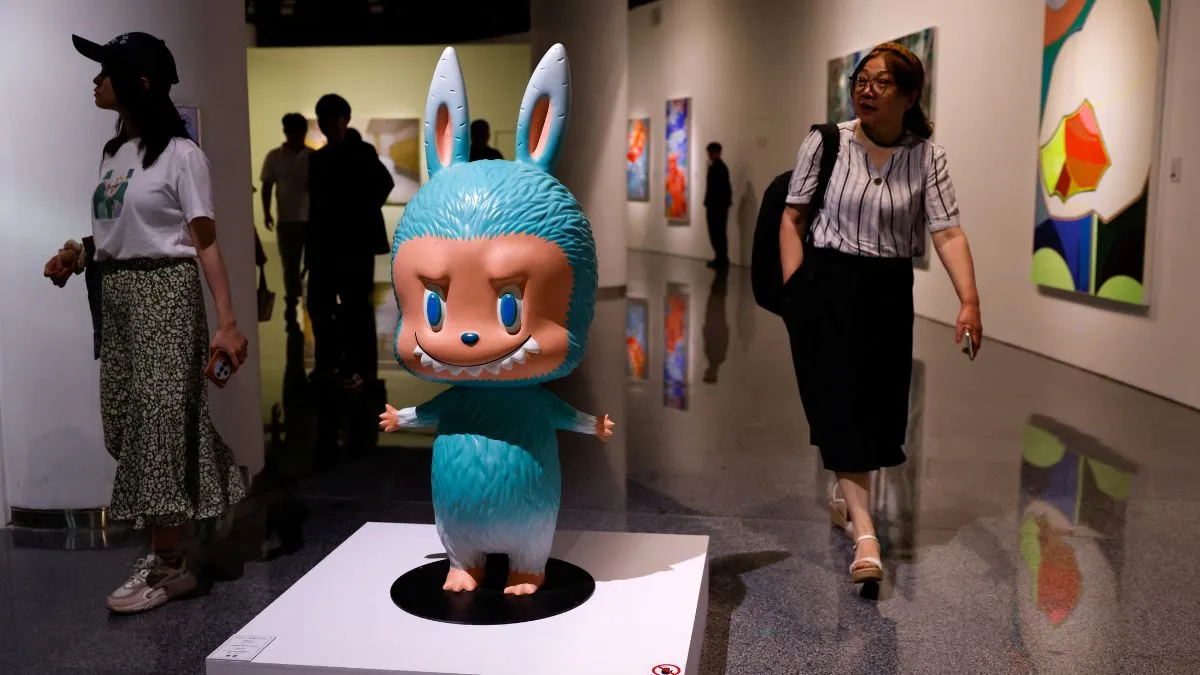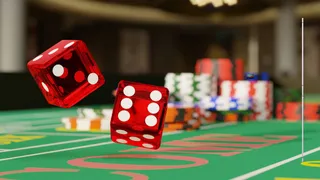- By Supratik Das
- Tue, 01 Jul 2025 03:53 PM (IST)
- Source:JND
Amidst a world of designer labels and gadgets, a small toy with large bug-eyes and cheeky smile has quietly amassed one of China's quickest-growing fortunes. Meet Labubu, the quirky collectible doll that has transformed Pop Mart founder and CEO Wang Ning into one of China’s youngest billionaires, with a net worth soaring to $22.7 billion as of June 2025. Labubu's rise from a minor character to an international collectible phenomenon is as astonishing as the toy's oddball appearance. Designed by Hong Kong native artist Kasing Lung, Labubu debuted in a 2015 illustrated book series called The Monsters Trilogy. Basing Labubu on Nordic mythology, Lung drew him as a well-meaning elf-like creature with good intentions but a tendency to wreak havoc.
Years after, Wang Ning recognized the potential of the mischievous monster when he was on the lookout for unique characters to include in Pop Mart’s blind box toys, sealed packages that conceal the figure inside until opened. Introduced in 2019, Labubu's blind box series was an overnight sensation among Asia's expanding population of designer toy enthusiasts. The actual genius of Pop Mart's success is its blind box business model, taken from Japanese capsule toys but elevated into a work of art. Every box contains a mystery character within it, a play on the excitement of discovery and the psychology of "just one more attempt" to set a collection complete. Limited-release "secret" characters such as special Labubu editions show up but once in every 72 cases, or even less often making a 10 USD toy into a collector's item costing thousands. Pop Mart's main characters, particularly Labubu, have generated viral crazes on TikTok, Instagram, and YouTube. Videos of opening Labubu blind boxes consistently get millions of views, while groups that resell online flourish as collectors chase up rare versions to exchange or sell for a premium.
Wang Ning's Rise: From Comic Shop To China's Top 10 Richest
Pop Mart founder Wang Ning, now 38, started out in 2010 with a tiny Beijing store dealing in comics and phone accessories. He had made a mid-course correction to designer toys after observing the increasing demand from young Chinese consumers for distinctive, art-based figurines that bridge nostalgia and rarity. The initial big hit of the company was the Molly doll, but it was Labubu that made Pop Mart an irresistible juggernaut. When Pop Mart debuted on the Hong Kong Stock Exchange in late 2020, its shares surged by more than 500 per cent in the first year alone. As of mid-2025, the company’s share price has tripled, reaching over HKD 270 (USD 34.40), pushing Wang Ning into China’s top 10 richest, alongside tech titans like Zhang Yiming of TikTok and Lei Jun of Xiaomi.
Recommended For You
Labubu's fan base isn't just enthusiastic, it’s prepared to pay record sums for the rarest versions. Exclusively seasonal releases and life-sized sculptures have triggered auction wars. At a recent auction, human-sized Labubu sculpture sold for 1.08 million Yuan (USD 150,275) in Beijing, over ₹1.2 crore highlighting how a humble toy can fetch the sort of money only accorded to good art. Labubu's rise from cult toy to international pop culture icon can be attributed to its increasing visibility in celebrity culture. The moment of truth came when Lisa of BLACKPINK was seen holding a Labubu figurine, and it immediately kickstarted a frenzy among her millions of fans. Shortly afterward, Rihanna, Dua Lipa, and Kim Kardashian were spotted with the eccentric doll, propelling Labubu from a cult toy to a status symbol sported by fashionistas. Labubu even made a debut appearance at Paris Fashion Week, highlighting how far Pop Mart has traveled in dissolving the boundaries between toys, art, and high-end collectibles.
Pop Mart: More Than a Toy Company
Pop Mart now has hundreds of shops around Asia and sends Labubu dolls and other collectibles all over the world. Its flagship stores tend to have queues of young collectors waiting overnight to be at the front of the line for new launches. Pop Mart is now being likened to high-end fashion brands in China and worldwide due to the strong loyalty of its customers. It has also moved into collaborations with international artists, foreign licensing agreements, and pop-up events that attract massive audiences. Its success has created a tide of blind box imitators across Asia, but none have equaled Labubu's formula for combining original storytelling, emotional resonance, and viral marketing might.
ALSO READ: A ‘Mosquito’ Can Change The Face Of War: Here's The First Look At China’s New Micro Drone | Watch
Labubu's tale attests that a toy is never simply a toy. It's a cultural icon, a community, and to some, a shrewd investment. To Wang Ning, it's the cornerstone of an empire constructed on surprise, nostalgia, and the craft of collectability. As millennials and Gen Z keep demanding designer toys and limited-edition figures, Pop Mart's Labubu refuses to let go of its spotlight. The goofy, toothy beast that began as a sketchbook doodle has become the hallmark of how creativity, good timing, and a little bit of intrigue can transform plastic and vinyl into billions.






